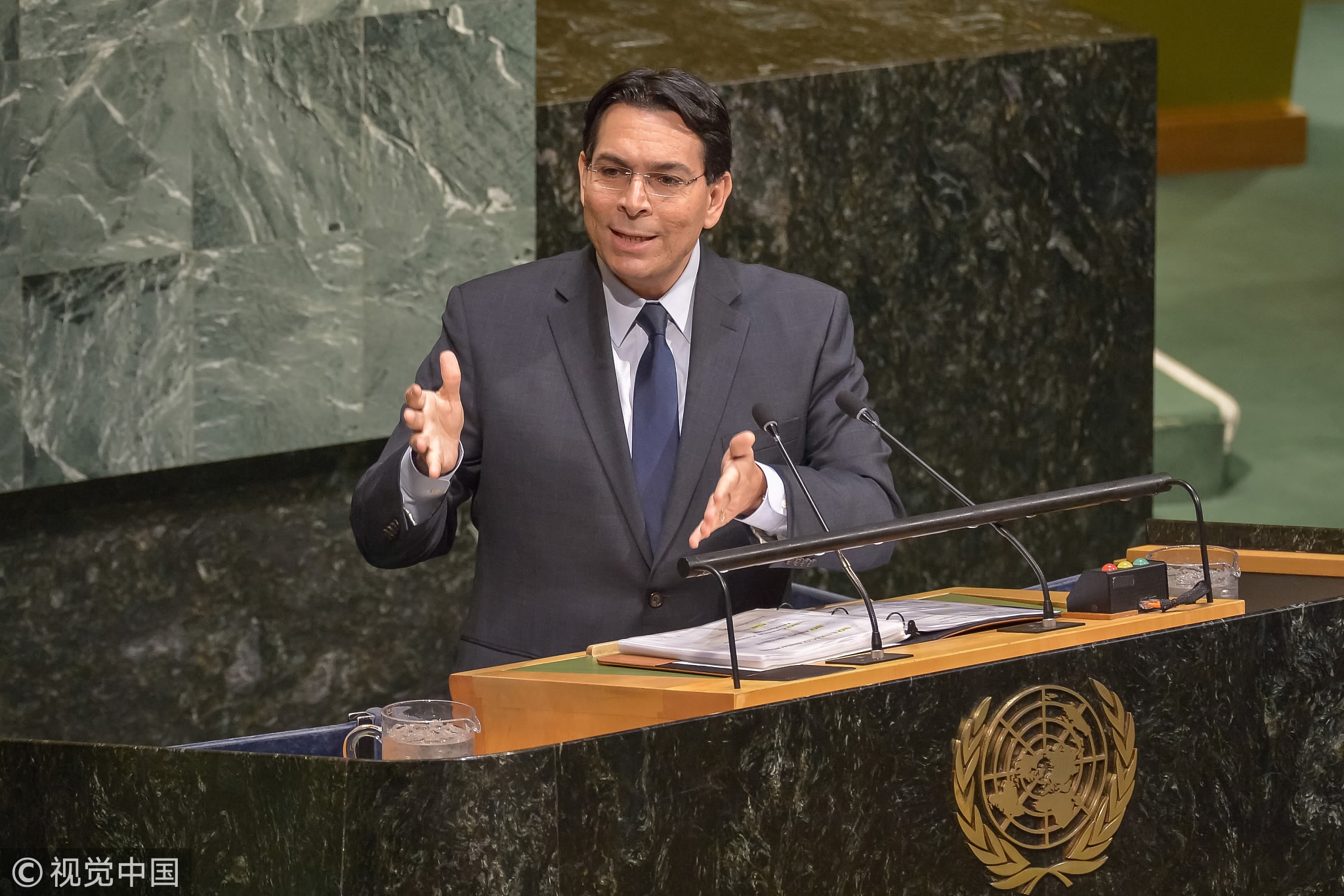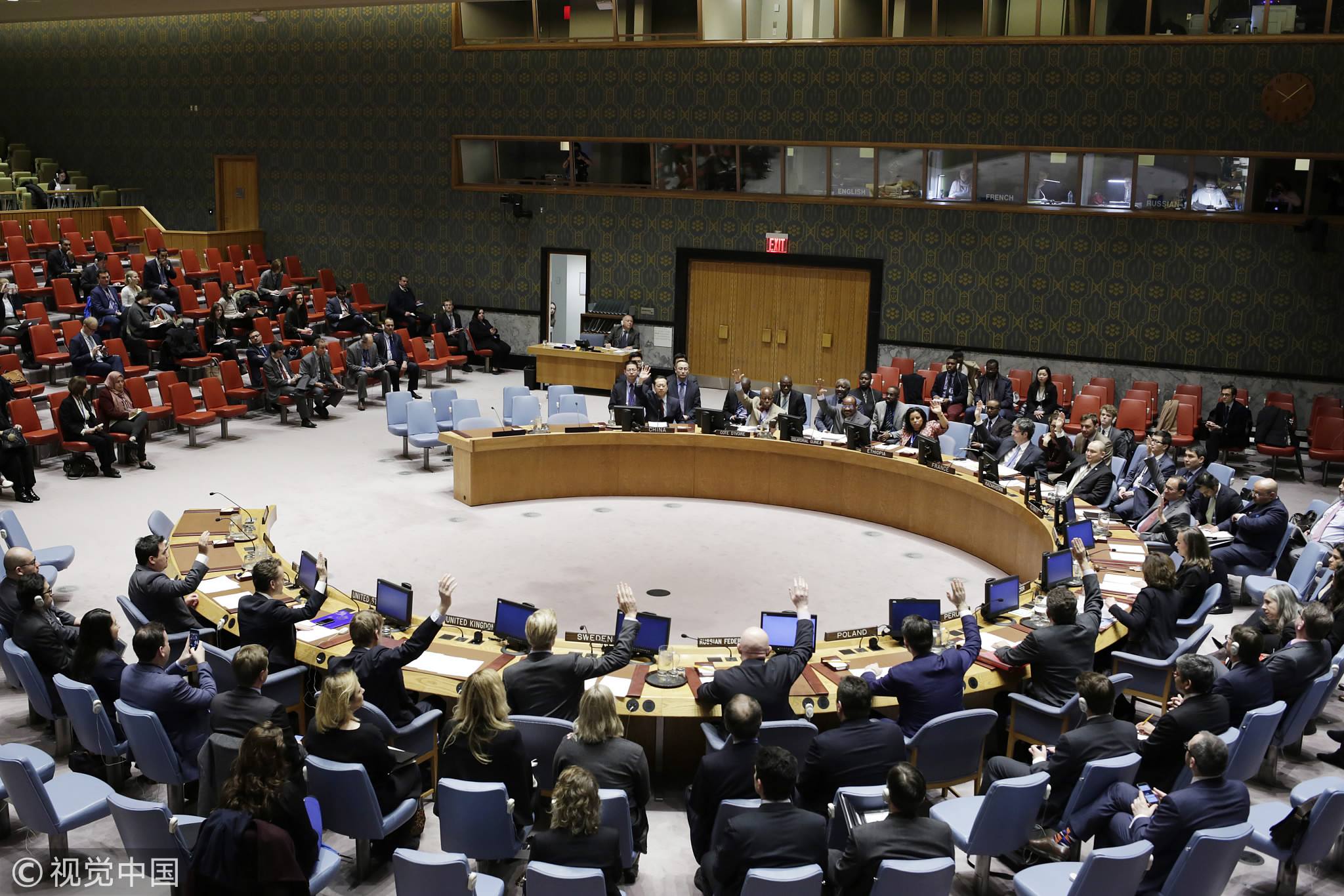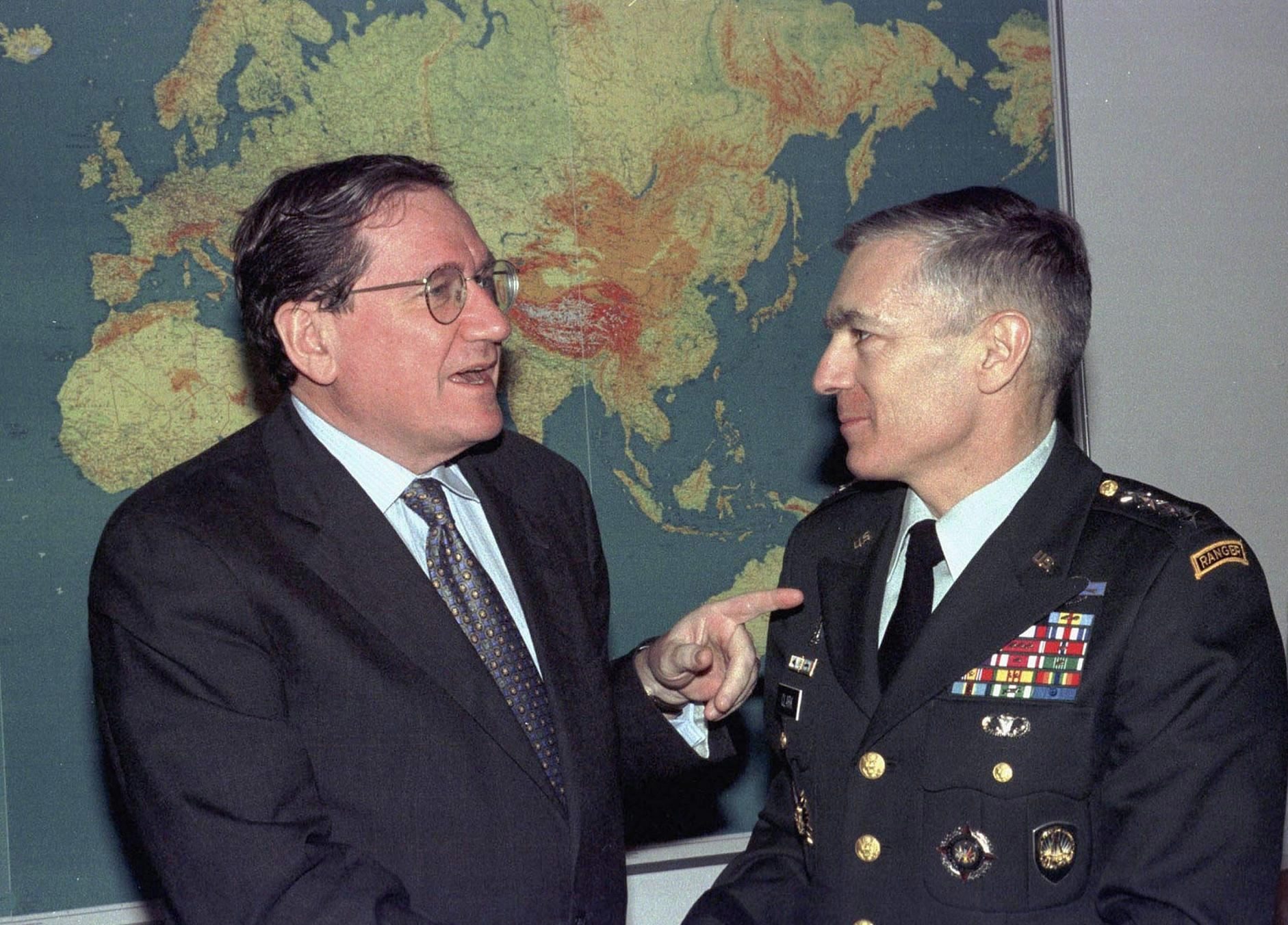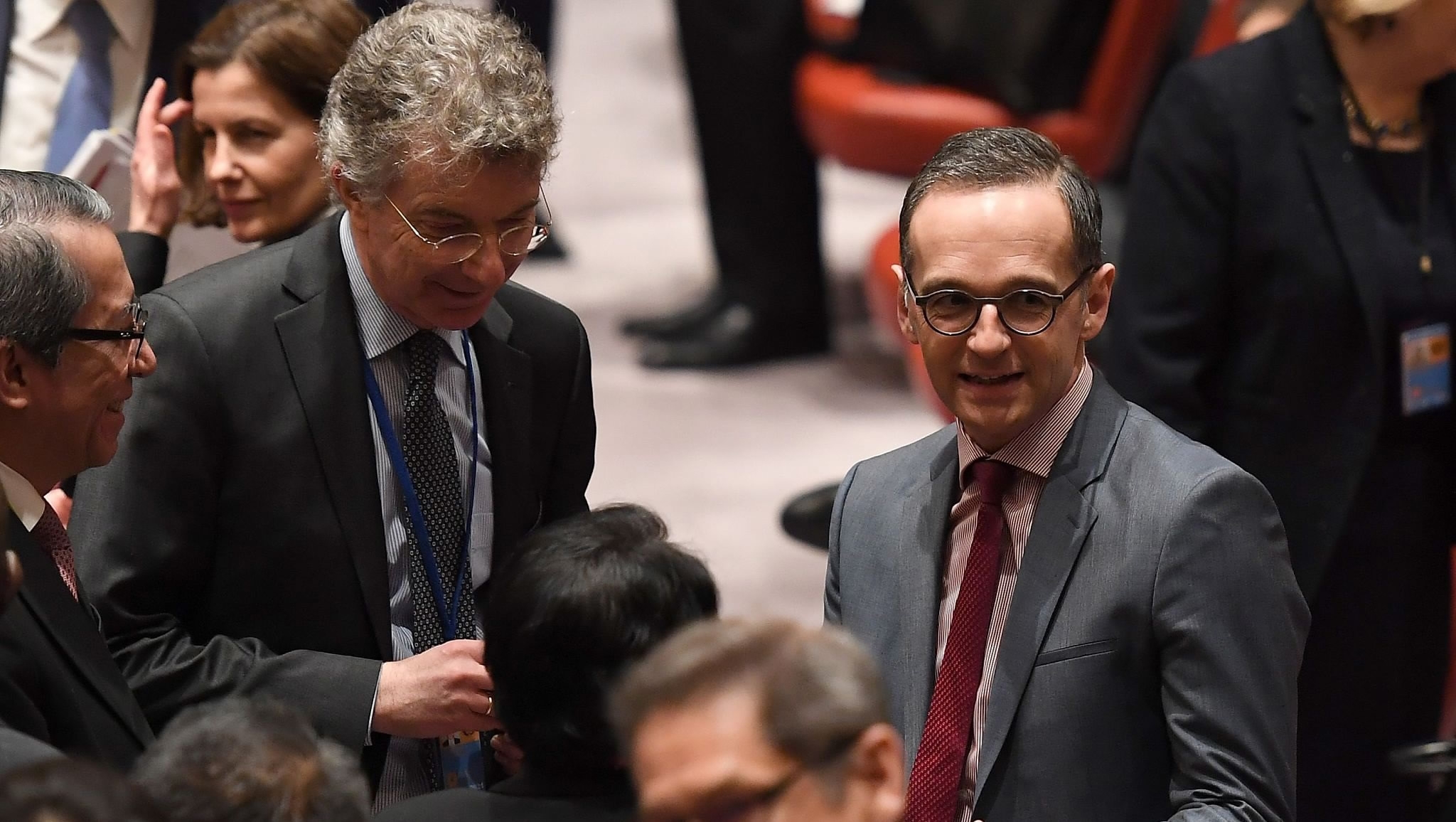Germany has come under fire from US officials and pro-Israeli groups for seeking a non-permanent seat on the UN Security Council (UNSC) in 2019-2020, accused of reneging on a two-decade-old deal made by Western powers to allow Israel on the top-level council.
So what is the dispute about, who is involved and what’s the fuss about non-permanent UNSC seats anyway?
Keeping their word
Israel announced its intention to run for a non-permanent UNSC seat as far back as 2005. In 2013, Germany added its name to the list, which already included Belgium, reportedly angering Israeli officials.

December 21, 2017: Israeli ambassador to the UN Danny Danon speaks at the United Nations General Assembly in New York, US. /VCG Photo
December 21, 2017: Israeli ambassador to the UN Danny Danon speaks at the United Nations General Assembly in New York, US. /VCG Photo
Now, the situation has flared up again ahead of voting in the UN General Assembly in June and after recent comments by Richard Grenell, a former US spokesman at the UN and current nominee for US ambassador to Germany.
In a series of tweets on March 14, Grenell argued that a deal was struck in the 1990s to allow Israel to sit on the Security Council in 2019-2020. “The US must demand that Europe keep its word,” he insisted.
Why is Germany’s candidacy a problem?
The UNSC is the UN’s top body and has the authority to impose sanctions or authorize the use of force, making it a big deal for any nation to sit at the table.

Member states vote during a UNSC meeting in New York, March 21, 2018. /VCG Photo
Member states vote during a UNSC meeting in New York, March 21, 2018. /VCG Photo
Aside from its five veto-wielding permanent members – the US, China, Russia, France and the UK – the Council has 10 non-permanent members who are elected for two years.
Each region has an allocated number of seats: Asia-Pacific and Africa have a combined five, Latin America and the Caribbean have two, Eastern Europe has one, and a group known as “Western Europe and Others Group" (WEOG) – which includes the US, Australia, Canada, New Zealand and Israel – has two.
Germany and Belgium have reportedly been lobbying hard to get a 2019-2020 seat. Israel, on the other hand, has yet to launch a vigorous campaign, according to the Jewish News Syndicate (JNS).
If either of its rivals pulled out of the race, Israel would be a shoo-in for the seat.
Israel and the UN
Israel is one of over 60 countries that have never sat on the Security Council, like Switzerland, Cambodia, Mongolia and Mozambique.

August 28, 2014: United Nations Disengagement Observer Force (UNDOF) armored vehicles in the Israeli-annexed Golan Heights. /VCG Photo
August 28, 2014: United Nations Disengagement Observer Force (UNDOF) armored vehicles in the Israeli-annexed Golan Heights. /VCG Photo
Germany and Belgium, on the other hand, have each had five terms over the past 70 years. The last time for Germany was 2011-2012 and for Belgium 2007-2008.
However, opposition from Arab countries and frequent UN condemnation of its policies on settlements and Jerusalem mean Israel would likely struggle to secure the necessary two-thirds of votes in the 193-member General Assembly to win a Security Council seat.
What was the deal?
According to Grenell, former US ambassador to the UN Richard Holbrooke brokered a deal in the 1990s whereby Israel “would run unopposed as the Western European & Others Group representative” if it waited until the end of the regional rotation in 2019.
A recent editorial in the New York Post also said that the WEOG “promised Israel that it and Belgium would run uncontested for the two open 2019-20 seats.”
“Germany is unlikely to withdraw. So, unless Belgium yields, Israel’s hopes for UN respect seem doomed for now – and maybe for the foreseeable future,” the newspaper said, slamming “Germany’s shameless power play.”

March 22, 1999: US Special Envoy Richard Holbrooke (L) discusses with US Army General Wesley Clark, Supreme Commander of NATO forces in Europe, at NATO Headquarters in Brussels, Belgium. /VCG Photo
March 22, 1999: US Special Envoy Richard Holbrooke (L) discusses with US Army General Wesley Clark, Supreme Commander of NATO forces in Europe, at NATO Headquarters in Brussels, Belgium. /VCG Photo
Other pro-Israel groups in the US have also come out against Germany's bid and urged Washington to force Berlin to stand down.
On the Israeli side, there has been little commentary about the issue.
Germany’s reaction
On Wednesday, German Foreign Minister Heiko Maas hit back at the criticism, telling reporters: "We are not running against anyone; we are running for a seat."
He noted that Germany seeks a non-permanent seat every eight years and pointed to the fact that it is the second largest provider of funds and troops to the UN to justify its seeking a place at the top table.

German Foreign Minister Heiko Maas (R) and German Diplomat Christoph Heusgen attend a United Nations Security Council meeting in New York, March 28, 2018. /VCG Photo
German Foreign Minister Heiko Maas (R) and German Diplomat Christoph Heusgen attend a United Nations Security Council meeting in New York, March 28, 2018. /VCG Photo
German diplomats have also denied a deal such as the one described by Grenell was ever made. Former German Ambassador to the UN Hanns Heinrich Schumacher told Deutsche Well that the claims were "absurd."
Splitting a seat?
Israel is still in the running but according to the JNS, “the Foreign Ministry has expressed a wish to quit the race because of the improbability of a win.”
Another solution may be that Germany and Israel share a seat, as is currently the case with Italy sitting on the Security Council last year and Netherlands taking over this year.
"There are very widespread rumors in New York that the US has floated the idea,” Richard Gowan, a UN expert at the European Council of Foreign Relations, told Deutsche Welle.
The UN General Assembly will vote on June 8 to elect the new non-permanent members, who will sit on the Security Council from January 1, 2019 to December 31, 2020.








